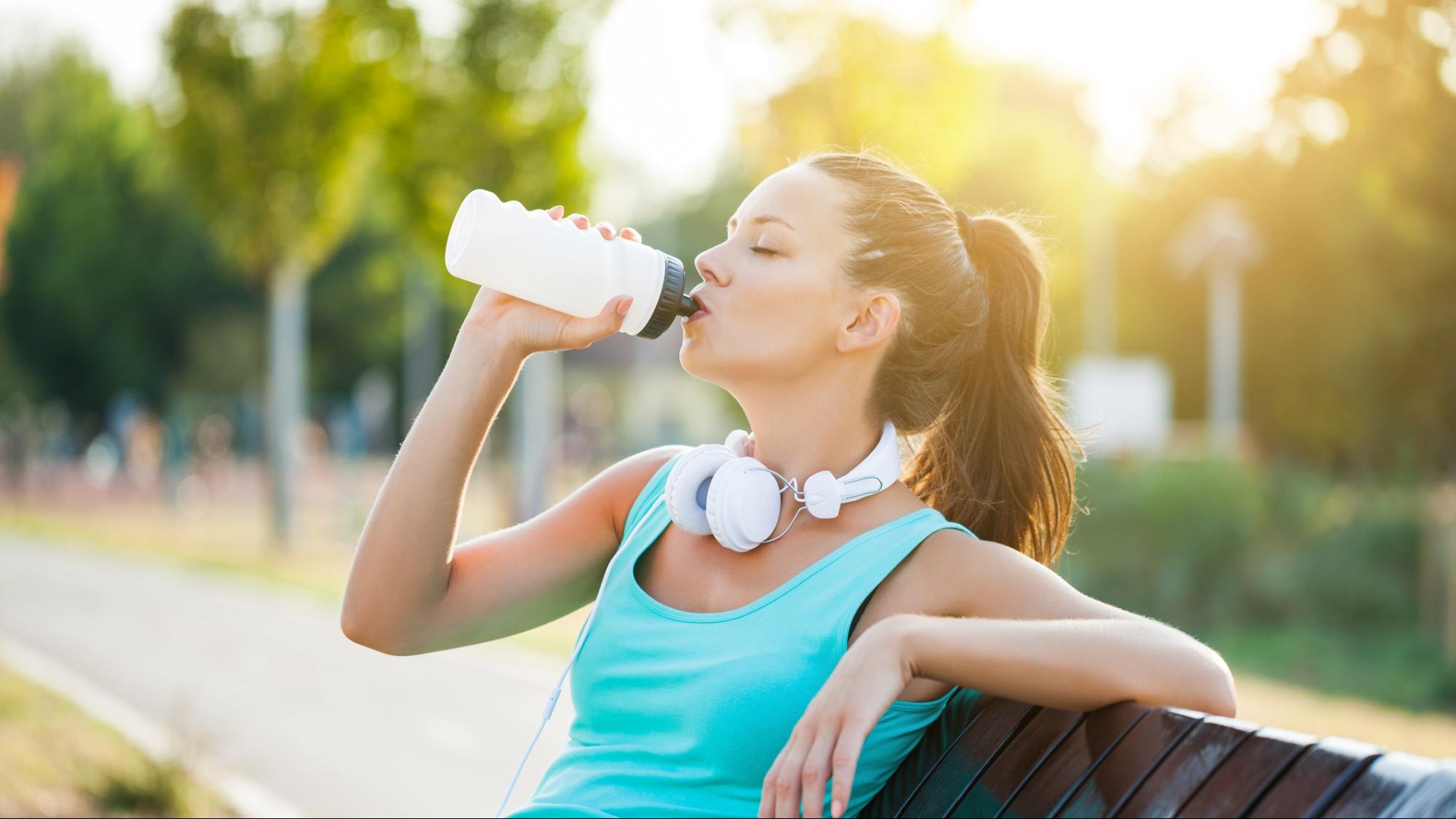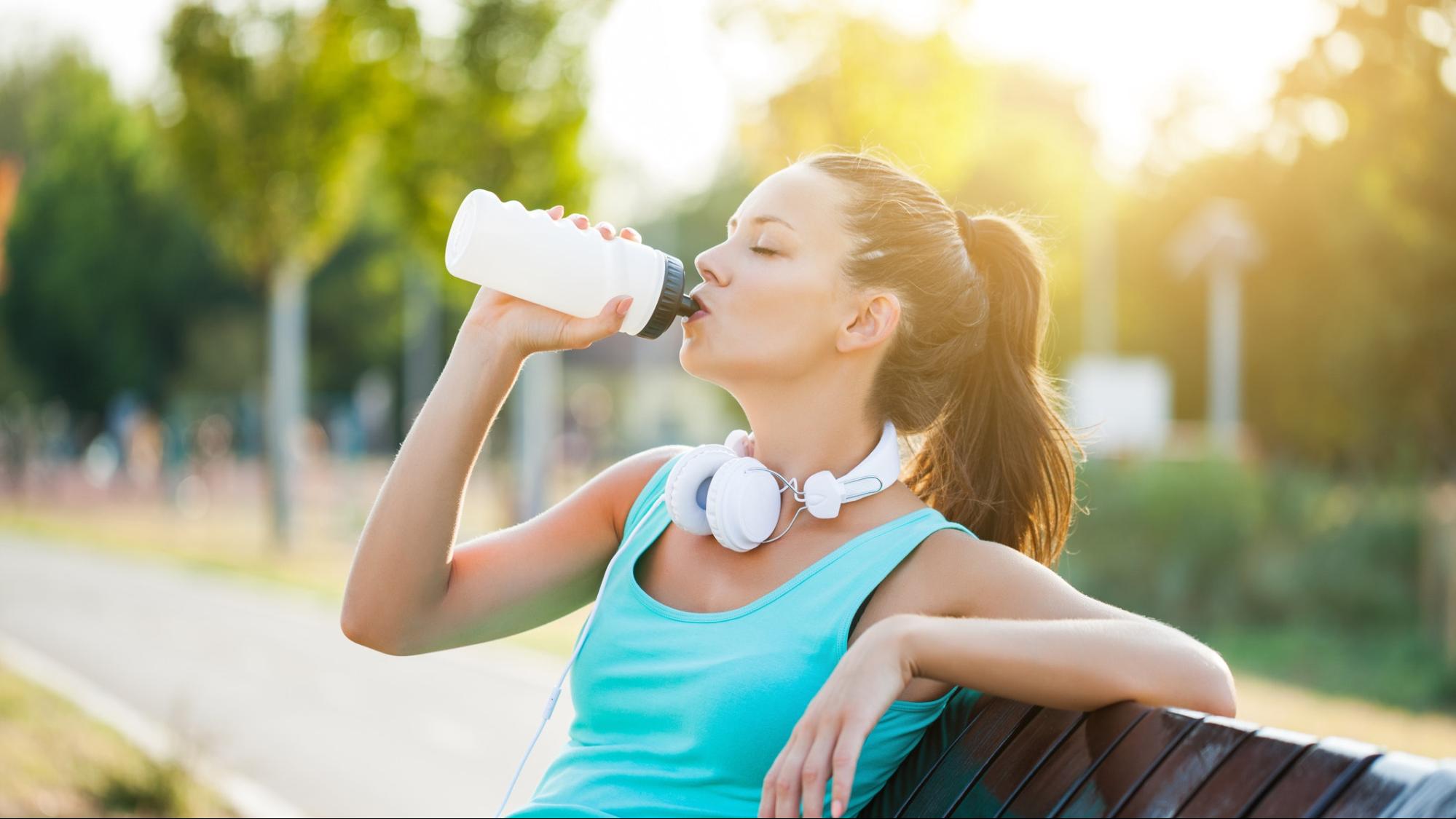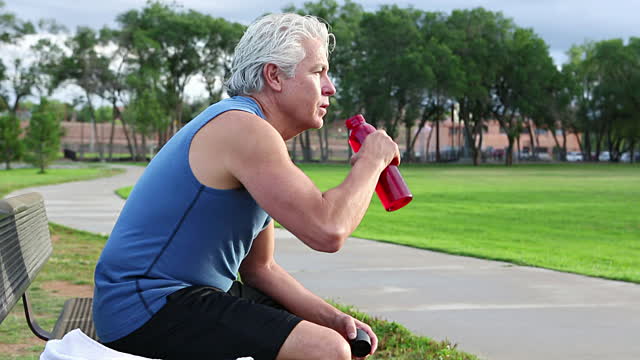
1/ Balancing body temperature
After dancing or engaging in intense physical activities, body temperature usually rises above normal levels. Drinking water helps lower body temperature, preventing excessive heat that can lead to metabolic disturbances.Plain water is still the best type of fluid to drink. You should avoid drinking very cold water or caffeinated beverages during and after exercise.

2/ Replenishing lost fluids
During dancing, the body loses water through sweating and breathing. The more you sweat, the more water your body loses. If you don’t quickly replenish the lost fluids, it can lead to several complications for your body, such as:
- Kidney problems
- Low blood pressure
- Cerebral hypoxia (lack of blood flow to the brain)
It’s important to note that these are potential serious consequences of severe dehydration. Most dancers won’t experience these extreme effects from a typical dance session, but it underscores the importance of staying hydrated.To maintain proper hydration, it’s recommended to drink water before, during, and after dancing.
This helps replace the fluids lost through sweating and prevents the potential negative effects of dehydration on your body and performance.Remember, the amount of water needed can vary depending on factors like the intensity and duration of your dance session, the environment you’re dancing in, and your individual physiology. Listen to your body and drink when you feel thirsty.
Cerebral hypoxia (lack of blood flow to the brain) is a very dangerous complication that can lead to confusion, blurred vision, dizziness, and even coma.
In addition, dehydration can also lead to constipation, unhealthy cell function, and other health abnormalities.
3/ Preventing muscle cramps
Your muscles contain up to 75% water. Drinking water after dancing helps replenish the necessary fluid your muscles need and prevents muscle cramps.
4/ Weight loss
Dehydration can damage the kidneys and liver, impairing their ability to burn/metabolize fat into energy. As a result, the amount of fat in the body may increase. Replenishing adequate water after dancing will help your liver and kidneys function better, eliminate fat, and aid in weight loss.
This point highlights the importance of hydration in maintaining proper metabolic function and supporting weight loss efforts. Here’s a breakdown of the key ideas:
- Organ function: Adequate hydration is crucial for the proper functioning of vital organs like the kidneys and liver, which play important roles in metabolism and waste elimination.
- Fat metabolism: The liver, in particular, is essential for fat metabolism. When well-hydrated, it can more efficiently process fats and convert them into usable energy.
- Weight management: By supporting proper organ function and metabolism, staying hydrated can indirectly contribute to weight loss efforts.
How to drink water correctly when dancing:
While the search results don’t provide specific information about drinking water during dance, here are some general guidelines based on common recommendations for hydration during exercise:
- Pre-hydrate: Drink water before your dance session to start well-hydrated.
During dance: Take small sips of water regularly throughout your dance session, especially during breaks. - Post-dance hydration: Drink water after dancing to replenish lost fluids. The amount needed will depend on the intensity and duration of your dance session, as well as individual factors.
- Listen to your body: Drink when you feel thirsty, but don’t overdo it. Excessive water intake can also be harmful.
- Consider electrolytes: For longer or more intense dance sessions, you might need to replenish electrolytes as well as water.
Remember, proper hydration is just one aspect of a healthy dance practice. It should be combined with appropriate nutrition, rest, and proper warm-up and cool-down routines for optimal performance and health benefits.
Pure water/filtered water is always the top safe choice, an essential and indispensable component for each of our bodies.
Fruit juices: Fruit juices not only provide antioxidants but also supply necessary fiber and vitamins for the body, helping to break down fat, combat fatigue, and promote muscle toning.
If you’re tired of the two types of drinks mentioned above, you can vary your beverages with different options such as: Coconut water; Salt and lemon water; Milk; Electrolyte drinks
-
Note the times when you drink water when practicing dancing
During exercise: every 10 – 20 minutes you should drink a small sip of water, avoid drinking too much water at once because it will easily shock your body, causing stomach pain/hip shock during exercise. You should also not let your body get too thirsty before reaching for water because by then your body is already lacking water.
After dance practice: you should allow 5-10 minutes for your body to regulate before starting to drink water. Ideally, drink about 250ml of water within 30 minutes after dance practice. And remember, don’t drink very cold water.
-
Some other notes
Although drinking water is very beneficial for the body, drinking too much can cause hyponatremia (low blood sodium). In severe cases, it can lead to seizures, coma, and even death.
You should sit down to drink water. You may not know this, but standing while drinking water regularly can cause more harm than you might imagine.
When we drink standing up, the water isn’t properly filtered by the kidneys and will strongly impact the lower part of the esophagus, damaging the sphincter muscle. The waste products will then enter the bladder and mix with blood, potentially causing damage to the kidneys, among other issues.
Replenish protein and carbs: Occasionally, after long and intense workout sessions, you should replenish your body’s protein and carbohydrates with milk or nutritional supplements.
Ensure you drink enough water each day according to your body weight. Refer to the information chart above.
Avoid drinking alcohol, especially in hot weather, as alcohol increases dehydration and slows down the body’s ability to recognize signs related to dehydration.
Although dance practice brings many benefits to both the physical and mental well-being of the practitioner, to achieve the best results, it should be combined with proper eating habits and rest in a reasonable and scientific manner.
I hope these guidelines on how to drink water during dance practice will help everyone better understand their body and improve any mistakes they might be making (if any).















